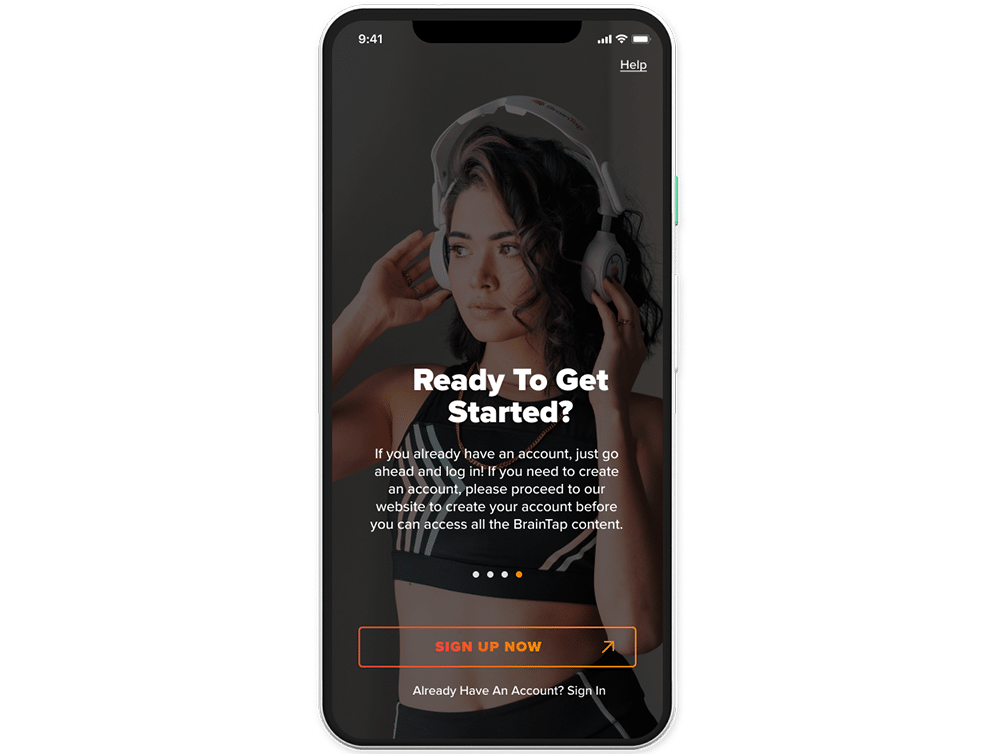
In our fast-paced and stressed-out world, optimizing your brain function and performance is crucial if you want to keep up. Luckily, we have biohacking and brain-hacking techniques to keep us firing on all cylinders.
With biohacking, we use specific techniques to optimize our biology and health, while brain hacking involves techniques designed to enhance brain function and performance. Both approaches can offer astounding results, but when you combine the two; that’s when you become unstoppable.
Understanding Biohacking and Brain Performance
For some of you, this may be a refresher, but to anyone new to the biohacking scene, let’s go over some highlights of why and how we can hack our bodies for optimal performance.
In a nutshell, biohacking involves using various techniques, including nutritional supplements, exercise, and lifestyle changes, to optimize overall health and performance. The goal of biohacking is to improve physical and mental health, prevent disease, and extend lifespan. By understanding how our bodies and brains work, we can hack our biology to achieve optimal health.
Intermittent fasting (IF) is one of the most popular biohacks, particularly for improving brain function. With IF, you cycle between periods of fasting and eating, giving your body an extended break from food so it can focus its energy on other to-do’s, like repairing tissues and cleaning up old cellular debris[1].
Studies show that intermittent fasting can improve brain function, reduce inflammation, and promote longevity[2][3][4]. When we fast, our bodies go into a state of ketosis, which triggers the production of ketones, a source of energy for the brain[5].
Another popular biohack that may enhance brain function is cryotherapy. Cryotherapy involves exposing your body to extremely cold temperatures for a short period. Yes, it can be unpleasant at first, but the payoff is that when you’re done, you’ll feel like an entirely new person. Studies show that cold immersion can provide a wide range of benefits, including improved athletic performance, reduced inflammation, mood enhancement, and potentially helping to turn around mild cognitive impairment[6][7][8].
Understanding Brain Hacking
Since your brain is, in fact, a part of your body, anything you do to optimize your physical health will ultimately impact your brain. That said, some hacks specifically enhance brain function.
Brain hacking involves using various techniques, such as meditation, exercise, and cognitive training, to optimize brain function and performance.
Here are a handful of my favorite brain hacks:
Meditation
Of all of the brain hacks out there, meditation is one of the most popular and well-researched. Studies show that consistent meditation can improve focus, reduce stress, and promote overall brain health. Any avid mediator will tell you that training your brain to stay focused on the present moment can significantly reduce anxiety and help you feel more clear and focused[9].
Exercise
Exercise is another incredibly effective way to rev up your brain activity. When you exercise, it increases blood flow to your brain, promoting the growth of new brain cells and improving cognitive function. Exercise also releases endorphins, chemicals that make you feel good[10][11].
Brain-Boosting Foods
Diet is a central part of biohacking and brain hacking. You are what you eat – so you might as well eat foods that make your brain happy.
Some of the best brain-boosting foods include:
- Blueberries – Blueberries are packed with antioxidants that protect your brain from oxidative stress. They also contain compounds that improve communication between brain cells and enhance memory[12].
- Fatty fish – Fatty fish, such as salmon and sardines, are an excellent source of omega-3 fatty acids, which are essential for brain health. Omega-3s help build brain cell membranes, reduce inflammation, and improve cognitive function[13].
- Dark chocolate – Dark chocolate contains flavonoids, compounds that improve blood flow to the brain and enhance cognitive function. Make sure to choose chocolate with at least 70% cocoa content to get the most benefits[14].
- Nuts and seeds – Nuts and seeds are an excellent source of vitamin E, which is essential for brain health. Studies show that consuming adequate vitamin E may improve cognitive function in those with mild impairments[15].
Trying to enhance brain function while eating a crappy diet is the definition of swimming upstream. Adding in brain-enhancing foods like those above will supercharge your other brain-hacking efforts so you can be the best version of yourself as quickly and efficiently as possible.
Combining Biohacking and Brain Hacking
As I’ve said, biohacking and brain-hacking practices are great on their own – but when you combine the two, you amplify your results big time. Personally, I’m all about efficiency, which is why I’m a huge fan of BrainTap.
BrainTap uses light and sound technology, along with guided meditation, to create a state of deep relaxation and mental clarity. These sessions are designed to reduce stress, promote sleep, and enhance cognitive function.
BrainTap also incorporates biohacking principles by promoting healthy habits, such as proper nutrition, exercise, and sleep. For example, you can stack your BrainTap sessions with a mindful eating practice, promoting healthy food choices and improving overall nutrition. BrainTap also offers sessions to enhance athletic performance, promoting exercise and physical activity.
The best part is that the BrainTap sessions are customizable, with over 2000 sessions to choose from, allowing you to tailor your experience to whatever your specific needs are at the moment.
Whatever I’m dealing with; sleep problems, fatigue, lack of focus, you name it, there’s a BrainTap session designed specifically for what I need to overcome.
The Takeaway
Due to the pressures of living in a fast-paced, modern society, we constantly need to raise the bar when it comes to optimizing achievement and performance. Biohacking offers various techniques that enhance and fine-tune your biology and health, while brain hacking provides tools for improving brain function and performance.
Finding ways to incorporate both biohacking and brain hacking into your lifestyle is the key to physical and mental excellence – let’s not settle for mediocre. If you’re looking for an easy way to get the best of both worlds with some variety and structure right at your fingertips, check out BrainTap.
Dr. Patrick K. Porter, the Inventor of BrainTap®
References
- Alirezaei, Mehrdad, et al. “Short-term fasting induces profound neuronal autophagy.” Autophagy 6.6 (2010): 702-710.
- Phillips, Matthew CL. “Fasting as a therapy in neurological disease.” Nutrients 11.10 (2019): 2501.
- Longo, Valter D., et al. “Intermittent and periodic fasting, longevity and disease.” Nature aging 1.1 (2021): 47-59.
- Kacimi, Safia, et al. “Intermittent fasting during Ramadan attenuates proinflammatory cytokines and immune cells in healthy subjects.” Nutrition research 32.12 (2012): 947-955.
- Jensen, Nicole Jacqueline, et al. “Effects of ketone bodies on brain metabolism and function in neurodegenerative diseases.” International journal of molecular sciences 21.22 (2020): 8767.
- Lombardi, Giovanni, Ewa Ziemann, and Giuseppe Banfi. “Whole-body cryotherapy in athletes: from therapy to stimulation. An updated review of the literature.” Frontiers in physiology 8 (2017): 258.
- Rymaszewska, Joanna, et al. “The improvement of cognitive deficits after whole-body cryotherapy–A randomized controlled trial.” Experimental Gerontology 146 (2021): 111237.
- Rymaszewska, Joanna, David Ramsey, and Sylwia Ch?adzi?ska-Kiejna. “Whole-body cryotherapy as adjunct treatment of depressive and anxiety disorders.” Archivum immunologiae et therapiae experimentalis 56 (2008): 63-68.
- https://www.apa.org/topics/mindfulness/meditation
- Gomez-Pinilla, Fernando, and Charles Hillman. “The influence of exercise on cognitive abilities.” Comprehensive Physiology 3.1 (2013): 403.
- Anderson, Elizabeth, and Geetha Shivakumar. “Effects of exercise and physical activity on anxiety.” Frontiers in psychiatry 4 (2013): 27.
- Cheatham, Carol L., et al. “Six-month intervention with wild blueberries improved speed of processing in mild cognitive decline: a double-blind, placebo-controlled, randomized clinical trial.” Nutritional Neuroscience (2022): 1-15.
- Dighriri, Ibrahim M., et al. “Effects of omega-3 polyunsaturated fatty acids on brain functions: a systematic review.” Cureus 14.10 (2022).
- Martín, María Angeles, Luis Goya, and Sonia de Pascual-Teresa. “Effect of cocoa and cocoa products on cognitive performance in young adults.” Nutrients 12.12 (2020): 3691.
- Lloret, Ana, et al. “The effectiveness of vitamin E treatment in Alzheimer’s disease.” International journal of molecular sciences 20.4 (2019): 879.











